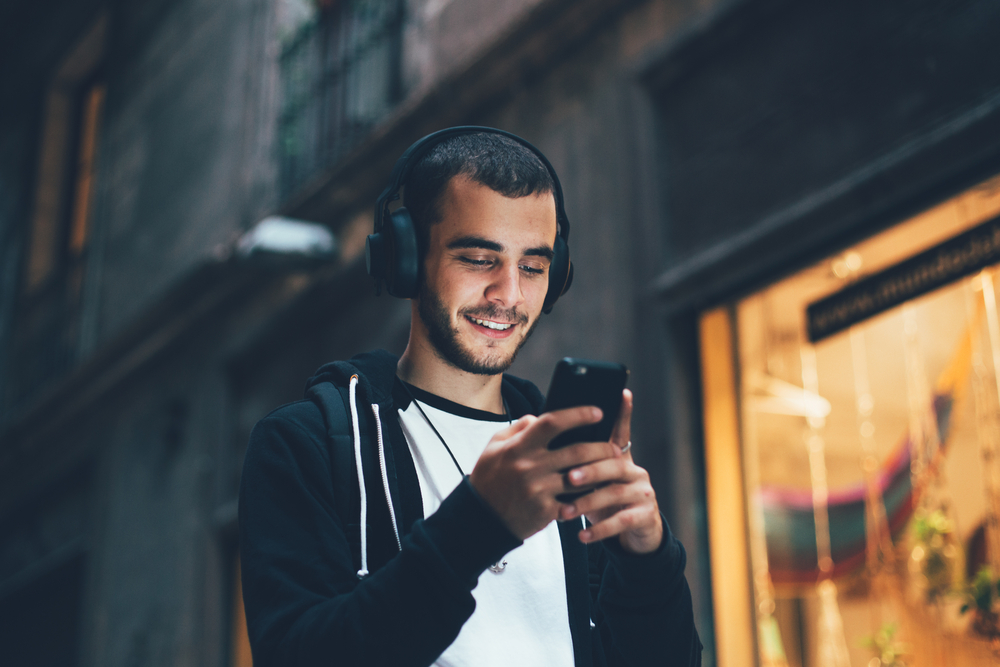
Say hello to James, a Say hello to music lover who seamlessly integrates Spotify into his work regimen, switches to Pandora during his jogs, and curates playlists for every instance imaginable, from cardio sessions to cooking and even gaming. His headphones are his constant companions, transforming his life into a fully soundtracked experience. James takes comfort and delight in the captivating realm of music, but the very source of his happiness might be harming his cherished ability to hear without him realizing it.
Concerning our ears, there are both safe and hazardous ways to indulge in music. Sadly, many of us tend to incline towards the latter.
What is the connection between prolonged exposure to music and hearing loss?
Over time, loud noises can bring about degeneration of your ability to hear. Hearing loss is typically linked to growing older, but recent studies indicate that it is mainly caused by damage from exposure to loud noises instead of being a natural part of aging.
Younger people are more sensitive to noise-induced harm as their ears are still in the developmental stage. However, teenagers tend to dismiss the potential dangers of excessive noise over time. An increasing amount of young people are experiencing hearing loss due to frequent use of loud headphones.
Is it possible to enjoy music safely?
Unlimited max volume is obviously the” hazardous” way to listen to music. But there is a safe(er) way to enjoy your music, and it typically involves turning the volume down. The general rules for safe volumes are:
- Adults should restrict their device listening time to 40 hours or less and ensure the volume stays below 80 dB.
- If you’re younger than 18, 40 hours is still fine, just be sure to keep the sound at a safe level, 75 decibels or lower.
Forty hours per week is roughly five hours and forty minutes a day. That seems like a lot, but it can go by fairly quickly. Even still, most people have a fairly solid concept of monitoring time– it’s something we’re taught to do successfully from a really young age.
The harder part is monitoring your volume. On most smart devices, computers, and televisions, volume is not computed in decibels. Its value is calculated utilizing a somewhat subjective or relative scale. The range could be as broad as 1 to 100, or it could be as small as 1 to 16. You might be unaware of the maximum volume range of your device or how near you are to reaching that limit.
Tips for effectively keeping track of your music volume
To deal with this problem, numerous free noise tracking apps are available for both iPhone and Android devices. These apps offer real-time insights into ambient noise levels, equipping users to adjust their music volume appropriately.
That’s why most hearing specialists encourage the use of one of many free noise monitoring apps. These apps– widely available for both iPhone and Android devices– will give you real-time readouts on the noises surrounding you. That way, you can keep track of the dB level of your music in real time and make adjustments.
Comparing relative volumes: from garbage disposals to dishwasher
For example, a noise level of 80 decibels is similar to the sound produced by a common garbage disposal or dishwasher – you can hear them, but they won’t blow your ears out. Identifying this standard is essential, as it represents the limit beyond which hearing damage becomes a substantial risk.
So, being extra vigilant when exceeding this decibel limit is important. Think about reducing exposure to excessively loud music by indulging in select tracks at full volume rather than indulging in complete albums.
Extended exposure to loud sounds can lead to hearing problems, including ringing in the ears, or tinnitus, and potentially irreversible damage to one’s hearing. By being aware of when our ears are at risk, we allow ourselves to make educated decisions in order to promote safer listening habits.
Set up an appointment for a hearing assessment
For better prioritization of your hearing health, it is recommended to consult a hearing specialist to schedule a thorough hearing exam. Proactive measures such as routine assessments can detect any potential issues early on, allowing for timely interventions and individualized recommendations to protect your precious sense of hearing.
